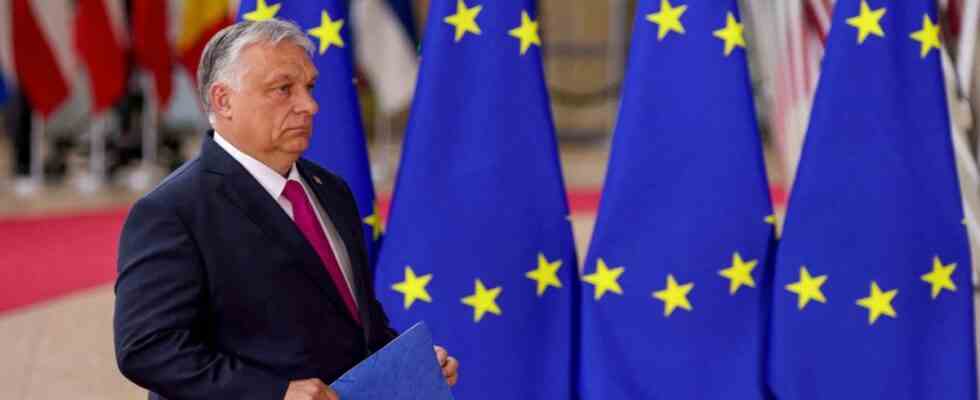How does European conservatism differentiate itself from the right? That interests political scientist Fabio Wolkenstein, who teaches in Vienna. In his book, he deals with the history of the Christian Democratic parties in Europe after the World War II, focusing primarily on the “dark side” of Christian democracy.
After the end of the Second World War, Christian Democratic parties undoubtedly belonged to the builders and guarantors of a new, democratic Europe based on the rule of law after the adventurous rapprochement of political Catholicism and its party-political manifestations in the interwar period in Germany, Austria and Spain with right-wing extremists, fascists and other authoritarians -Anti-democratic movements, represented by the Austrian Christian Socials and their chancellor Engelbert Dollfuss and the German Center Party with chancellors Heinrich Brüning and Franz von Papen.
A spirit of optimism after the war – but not for long
The new foundations of Christian Democracy after 1945 in Italy and Germany were characterized by a pro-democracy spirit of optimism, as expressed, for example, in the CDU’s “Ahlen Program” of 1946: “The capitalist economic system did not do justice to the national and social vital interests of the German people”. . However, this program with socialist elements was replaced just three years later by the economically liberal “Düsseldorf Principles”.
The first dark sides of European Christian democracy became apparent in dealing with Franco in Spain and Salazar in Portugal. Both dictators were formally courted by the Christian Democrats in Western Europe, favored economically and politically spared. Structurally comparable things happened in 2004 after the eastward enlargement of the EU with the 17 only halfway democratized parties from the former people’s democracies in the east.
Although Viktor Orbán openly professes “illiberal democracy” in Hungary, has ruled with decrees since 2020 and installed an autocratic political regime, it took a very long time for the Christian Democrat-led “European People’s Party” (EPP) to systematically undermine EU norms and hurtful Hungarian provocation with appropriate means, which the Bavarian politicians under Seehofer and Söder tried to prevent until the end.
The EPP Group hesitated for a long time on the subject of Hungary
Finally, Orbán’s Fidesz party forestalled an expulsion from the EPP Group by voluntarily withdrawing on March 3, 2021, after Hungarian MPs had secured a majority for the Christian Democrats in the EU Parliament for years. Wolkenstein rightly speaks of the EPP’s complicity with Orbán in the systematic undermining of democracy and the rule of law in Hungary.
With “unscrupulous power politics” that shy away from almost nothing, Sebastian Kurz also distinguished himself, first as ÖVP party leader, then as chancellor, until he definitely resigned in October 2021 and as a “global strategist” directly in the service of the multimillionaire, Trump supporter and hedge fund manager Peter Thiel to support his project to build a bridge between the Christian-liberal mainstream and dedicated right-wingers.
The standard, the most readable Austrian newspaper, asked as early as May 2021: “How much Orbán is in Kurz?” As for the state and future of European Christian democracy, Wolkenstein’s diagnosis is cautiously pessimistic. It oscillates between helplessness and a lack of prospects, as embodied by Armin Laschet, for example, and the Austrian ÖVP’s open willingness to cooperate with right-wing and centre-right parties of authoritarian-conservative origin.
Hans Maier’s standard work is apparently unknown
Wolkenstein’s complaint that there is a lack of a standard work on the history of Christian democracy in Europe appears somewhat brash. The former Bavarian Minister of Education Hans Maier (CSU) dealt with in his political science dissertation from 1959 – “Revolution and Church.
Studies in the Early History of Christian Democracy (1789-1850) is only part of this history, but it sets a standard that makes Wolkenstein’s book on the post-war history of Christian Democracy look bad in every respect. In particular, Maier’s analysis of political Catholicism as a specifically Catholic response to modernity is and remains a high-ranking standard work.
Fabio Wolkenstein: The Dark Side of Christian Democracy. Story of an authoritarian temptation. Verlag CH Beck, Munich 2022. 222 pages, 16.95 euros.

